Reading can serve many purposes, and we each come to the pastime with different goals. Some read strictly for pleasure or to escape, others read to learn and grow. Many of us choose a variety of books to suit our different reading needs.
I am so happy to live in a time and place with access to more books than I could read across many lifetimes. Every time I begin a book, a unique itch in my reading life is scratched. Somehow, though, it seems that regardless of the genre or author, my stated reason for reading is invariably accompanied by a broader purpose: I read to deepen my understanding of humanity—my own, and that of others (both real and imaginary). From the most intellectual treatises to the “brain candy” mysteries that are my not-so-guilty pleasure, I enter nearly every book with an eye towards what the author and subject matter might reveal about this world (and occasionally other worlds) and the humans who occupy it.
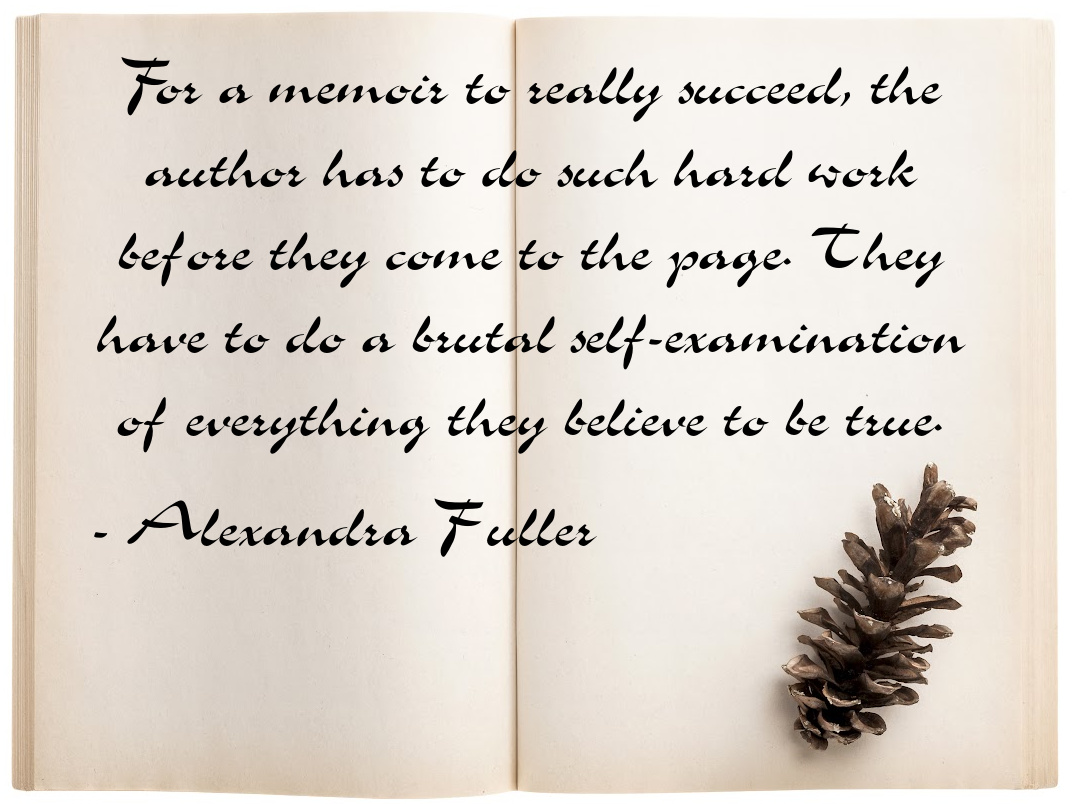
Fiction is an excellent conveyor of the deepest truths of humanity, but the most obvious source of genuine human insight is memoir. It’s a genre I read sparingly, as I can be particular about the tone and content within a memoir. I don’t care for stories that are salacious, vindictive, or shared from a place of victimhood and unaddressed wounds. I dislike memoirs that unfairly center the flaws of others or memoirs that are falsely optimistic (or just plain false). In-the-moment memoirs have their place, but I appreciate memoirs that put some distance between the story and the telling. A successful memoirist must also strike the right balance of being self-aware without becoming self-indulgent.
Even with my high threshold for memoirs I will choose to read, I have had great success within this genre. So much success, in fact, that when I first set out to do a roundup of 5-star memoirs, I was unable to narrow my list to fewer than twenty titles! Rather than inundate you with a massive list, I decided to narrow the category down to a very certain type of memoir: stories that are incredibly hard but also offer hope. In the future, I’ll do Best of the Backlist posts featuring humorous memoirs and delightful essay collections and parenting stories. But for today, I’m sharing stories that are sad and even tragic, but redemptive.
The authors of these books have endured seemingly insurmountable challenges and hardships: addiction, betrayal, abandonment, neglect, physical trauma, terminal medical diagnoses, and unfathomable losses. These authors were not defeated by their trials, but demonstrate great courage and resilience in sharing their stories.
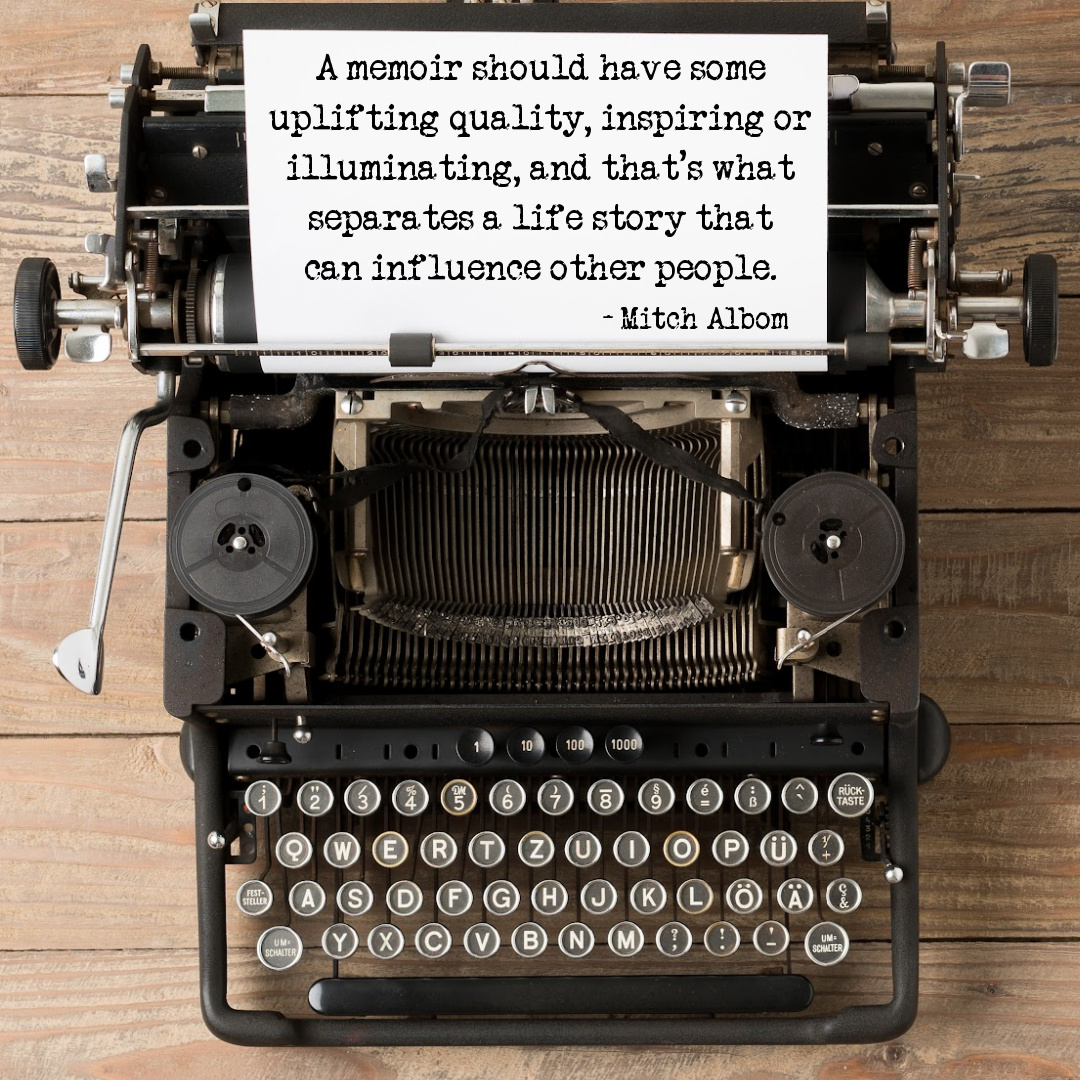
These challenging memoirs may not be to every reader’s taste. I consider myself a sensitive reader, yet I appreciate these books for helping me feel seen in my own hardship and also giving me perspective on my personal woes compared with the greater challenges others have experienced and survived. Stories like these expand my empathy for individuals enduring similar trials in silence: these books give words to those who cannot or will not open up about their personal pain.
Mostly, books like these memoirs provide inspiration. The authors here are real-life heroes who have walked through valleys with dignity. Their stories—even those that do wrap up tidily—offer a showering of hope within a drought, a glimmer of light in the darkness, a hand-drawn roadmap for pioneers who forged the obstacles of life and went on to write about it.
I played it fast and loose with the “memoir” label for a couple of these books, as some are more likely to be shelved under Personal Growth or Spiritual Inspiration. A unifying theme within these eight titles is a strong central figure who has suffered and still pursued all that is true and beautiful and good.
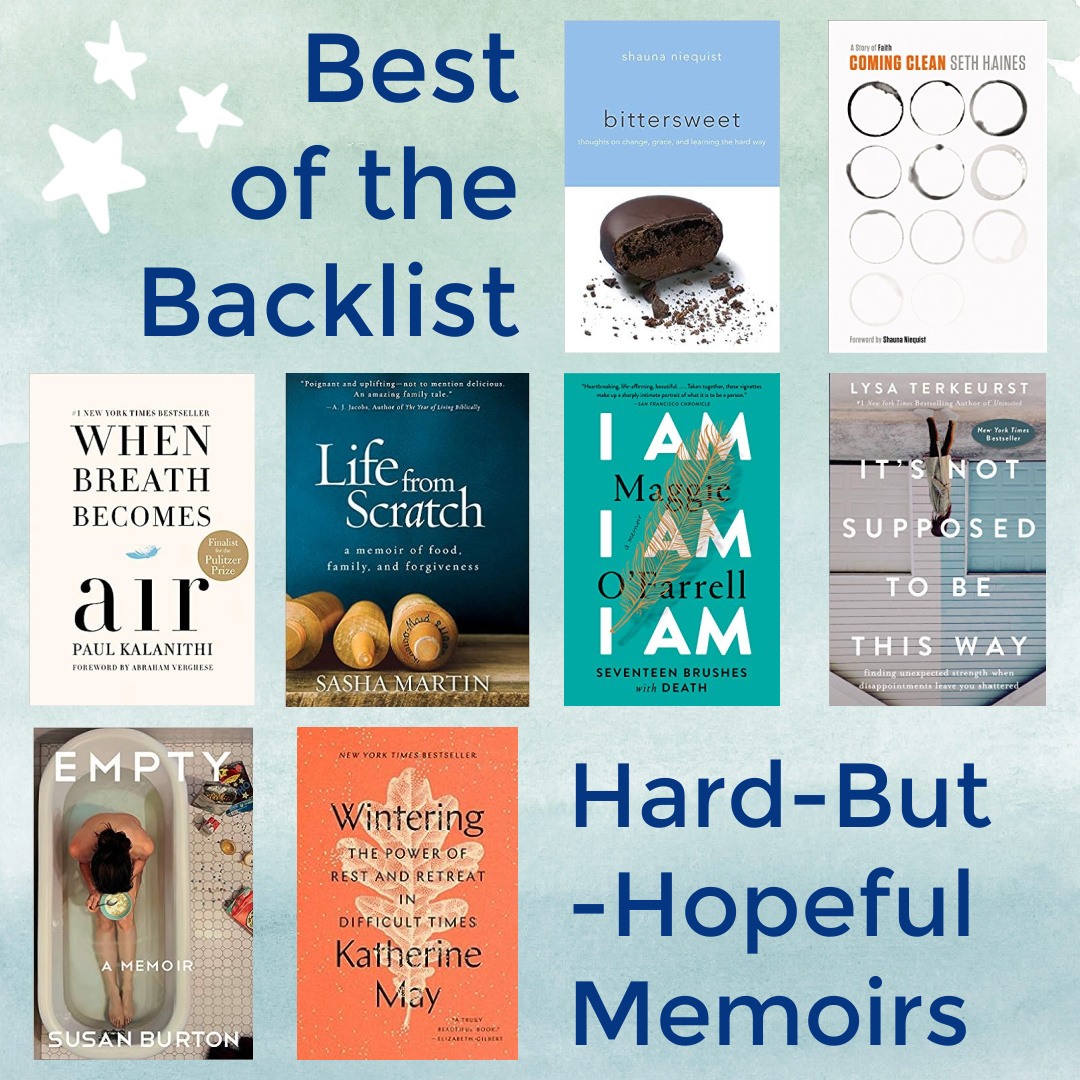
(2013) Bittersweet: Thoughts on Change, Grace, and Learning the Hard Way, by Shauna Niequist In this vulnerable, contemplative memoir in essays, Niequist shares stories of the big and little things in life, mining each experience for “opportunities to grow, things to learn, and ways to transcend and transform.” The book explores a tender year in Niequist’s life, in which she and her husband left jobs, moved to a new state, said goodbye to many friends and family members, lost a baby, and suffered through secondary infertility. Stories about motherhood, marriage, friendship, and dinner clubs are filled with laughter and sorrow, love and longing, grief and hope, all fitting with the book’s theme of bittersweetness, “the idea that in all things there is both something broken and something beautiful, that there is a sliver of lightness on even the darkest of nights, a shadow of hope in every heartbreak, and that rejoicing is no less rich when it contains a splinter of sadness.” Niequist’s subject matter is quotidian, yet her style is poetic and points to the power of reflection and the amazing life lessons that can be gleaned from life’s hardest, most desperate moments. I especially admired Niequist’s ability to candidly share the hard parts of her life, while remaining firmly planted in the hope that we have in Christ. (Original Review)
(2015) Coming Clean: A Story of Faith, by Seth Haines: Seth Haines was a God-fearing father of four, a successful attorney, and a respected leader within the Christian community. He was also addicted to alcohol. When Haines’ youngest son encountered life-threatening illness, his addiction grew unmanageable, and in praying for his son’s healing, he recognized the healing that needed to take place in his own life. Coming Clean is lifted directly from Haines’ journal through his first ninety days of sobriety, which coincide with ninety days of spiritual healing and a rediscovery of faith. This memoir is raw and painful, oozing with alcohol and overflowing with poignant theological truths. With breathtaking vividness and courageous candor, Haines offers windows into his broken past, his tumultuous faith, and a heart that is wounded but hopeful. Though Haines’ struggle is with alcohol, his story will resonate with anyone who has sought solace apart from God and come up empty. (Original Review)

(2016) Life From Scratch: A Memoir of Food, Family, and Forgiveness, by Sasha Martin This memoir was published shortly after Sasha Martin concluded a project of cooking through almost 200 countries, a journey I had followed on her blog. Martin’s optimistic, upbeat website gave no hint of her tragic past, so I was taken off guard when reading about her horrific childhood in this memoir that offered a different (but helpful) perspective on the behind-the-scenes of her cooking blog. Martin endured unspeakable hardship in her youth; remarkably, she presents her story with an eye toward the future, and grace for those who have harmed her. Martin is candid about the discrepancies between her carefully curated blog and her real life, something that few influencers were discussing at that time but is just as relevant (if not more so) today. Martin’s writing balances vivid storytelling with evocative descriptions of food and feelings, and the recipes sprinkled throughout the book enhance the narrative and convey the powerful role food can play in our healing. (Original Review)
(2016) When Breath Becomes Air, by Paul Kalanithi: Death is something we all experience—peripherally always, and then, eventually, first hand. Our deaths are not an enjoyable subject to contemplate, yet we are in capable hands with this author who witnessed death in a professional capacity and then, slowly and painfully, in himself. This brief memoir chronicles the life of Paul Kalanithi, a neurosurgeon who was in his mid-30s when he was diagnosed with stage IV lung cancer. As Kalanithi makes the awkward and painful transition from doctor to patient, he begins to ponder life’s biggest questions: What makes a life worth living, particularly when that life is destined to be cut short? What are the best ways to compassionately assist others in the dying process? How do we die gracefully ourselves, and how can we make the most of the time we still have? Kalanithi also begins viewing his own career differently, feeling the gravity of his position more deeply than ever. At the book’s center is an intersection of science and the arts, and how they converge to enhance understanding of each other and add meaning to life itself. It’s not a spoiler to say that this book ends with Kalanithi’s death, and the afterword, written by his wife, is beautifully touching and proof that all life, regardless of how short, is valuable and can have profound impact. This should be essential reading for every doctor, and everyone who has ever been treated by one. (Original Review)
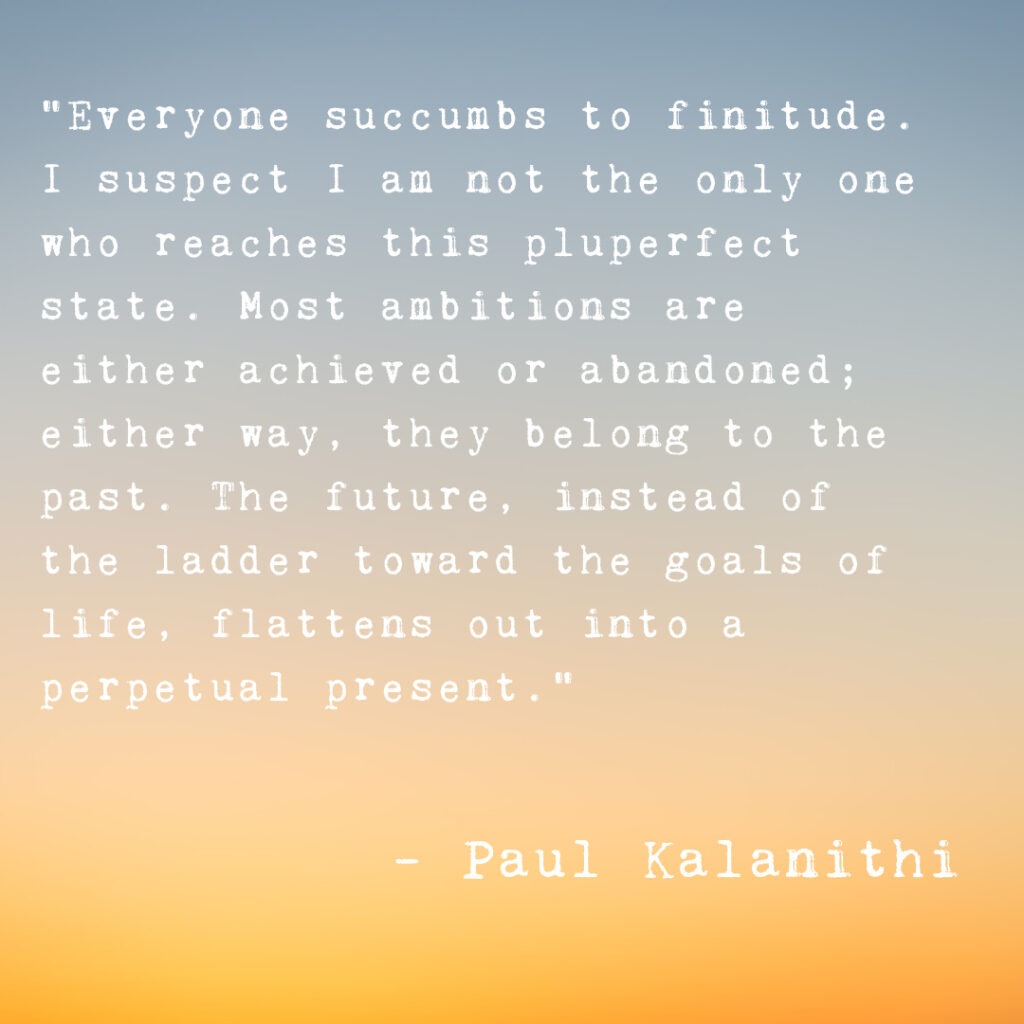
(2018) It’s Not Supposed to Be This Way: Finding Unexpected Strength When Disappointments Leave You Shattered, by Lysa TerKeurst: Having followed Lysa TerKeurst’s work for years, I was floored when I first learned that this admirable Bible teacher whose life appeared perfect had been suffering behind the scenes: a crumbling marriage, followed by numerous extreme health problems, were just the beginning. Here, TerKeurst shares the real-time account of a painful few years, beginning with her husband’s decision to leave. Her writing is raw and real, filled with palpable pain and heartfelt cries to God; through it all, her faith does not waiver. She continually acknowledges that God is using her circumstances for His glory, that although her life is dominated by disappointment, she need not fall prey to the enemy’s advances but can remain steadfast in her assurance that God is good and that His hand of guidance and protection is upon her. She remains focused on God’s trustworthiness and on His Big Picture plans for humanity and for each of us, His children. With lovely prose that is backed by Scripture, TerKeurst offers an example of steadfast faith and resilience in the midst of trial. This is excellent reading for those grappling with a life that feels harder than it should be and wanting to acknowledge their pain without living in it. TerKeurst herself is not the center of this book, making it the least memoir-y title on this list, yet hers is one of the most inspiring stories I know and she includes enough of it here to earn a spot in this roundup. (Original Review)
(2018) I Am, I Am, I Am: Seventeen Brushes with Death, by Maggie O’Farrell In this brilliant collection of essays, novelist Maggie O’Farrell recounts seventeen encounters with death: the childhood illness that still affects her today; the terrifying encounter with a murderous man in her teens; the births of her children and deaths of those that went unborn. Seventeen life-threatening experiences might seem extreme, but it is not so uncommon as we might think. As O’Farrell herself states, “We are, all of us, wandering about in a state of oblivion, borrowing our time, seizing our days, escaping our fates, slipping through loopholes, unaware of when the axe may fall.” O’Farrell is notoriously private about her personal life, but stepped out of her comfort zone with this memoir in solidarity with her young daughter (who suffers from a severe immune condition): here, O’Farrell shows her daughter and all of us that life is still possible when we are facing down death at every moment. O’Farrell is an exquisite writer, conveying enormous themes without sacrificing the immediacy and drama of the current story. The essays—named for the parts of the author’s body most in jeopardy within each story (cerebellum, neck, bloodstream, etc.)—offer a window into the experiences informing her complex, heartfelt fiction. (Original Review)
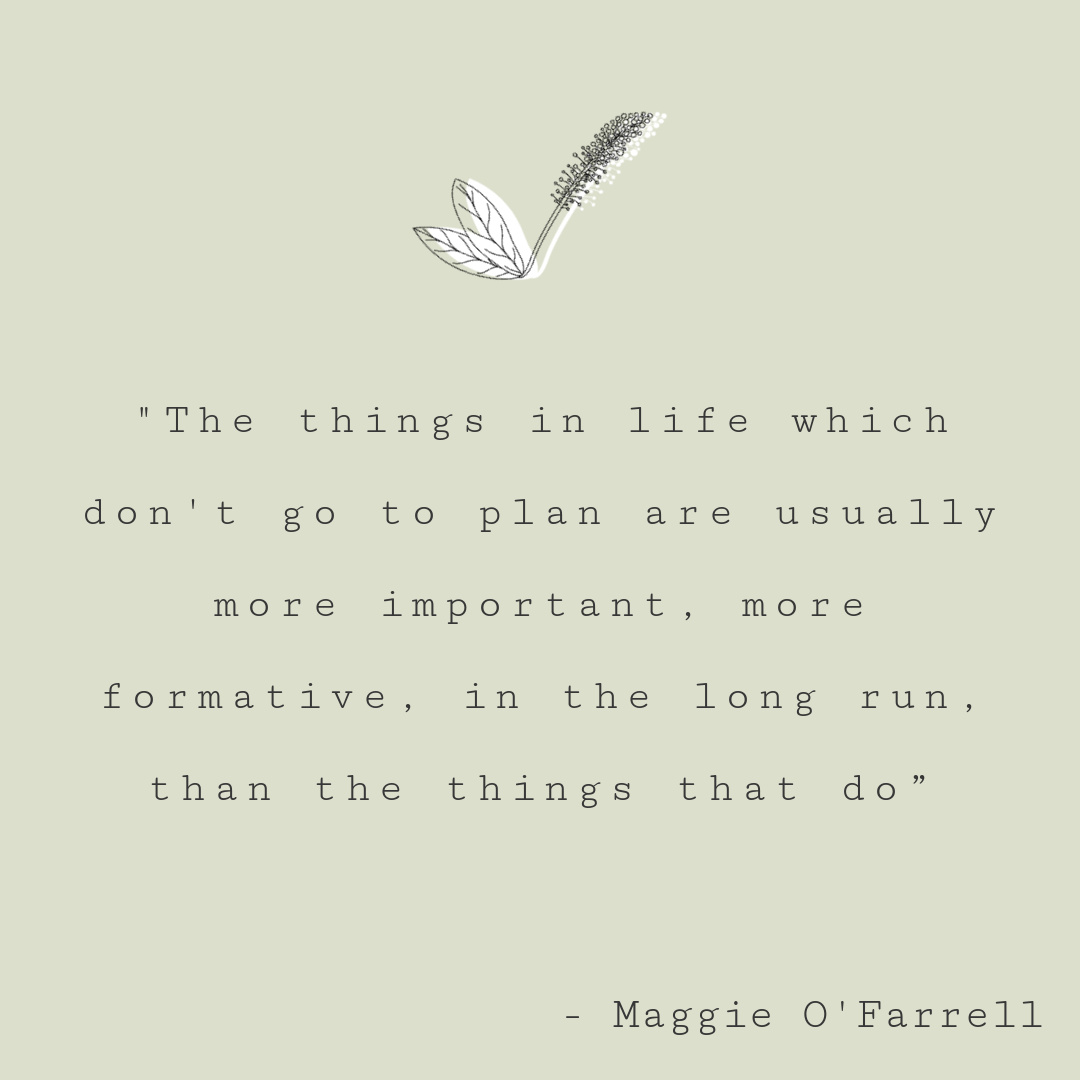
(2020) Empty, by Susan Burton: For almost thirty years, Susan Burton carried the secrets of her compulsive overeating and anorexia; in Empty, the middle-aged author emerges from years of secrecy and shame to share the intricacies of her complex and deeply tormented relationship with food. My own decades-long battle with disordered eating was what drew me to this memoir, and Burton’s experiences reflect my own in some shockingly similar ways. I felt both known (comforting) and exposed (horrifying) in reading about Burton’s life, told through a lens of her relationship with food—something that has always permeated every facet of her existence. Her storytelling is at once specific and universal, with prose that is vividly corporeal, engaging sensations and elucidating emotions once dulled by endless cycles of binging and restriction. Empty is unique among addiction memoirs in that her story is not over; Burton is honest about her ongoing struggle, and her visceral courage and willingness to share from a position of not-quite-recovered is inspiring and redemptive. (Original Review)
(2020) Wintering: The Power of Rest and Retreat in Difficult Times, by Katherine May: This reflective memoir about the author’s personal winter season (endured across several months of an actual winter) is gentler than the other titles in this list: neither trite nor morose, I found it to be a perfect winter read—brimming with sights and sounds and feelings of winter, while drawing the reader into the cozy warmth that can be experienced only from within the dark and cold of this season. May’s prose is mesmerizing, recounting engaging stories and brilliantly paced observations in philosophical, marvelously poetic language. The wintering described in the pages of this book is both literal and metaphorical; pair it with a crackling fire and a nourishing cup of soup as you enter into this ray of light in the darkness. (Review)
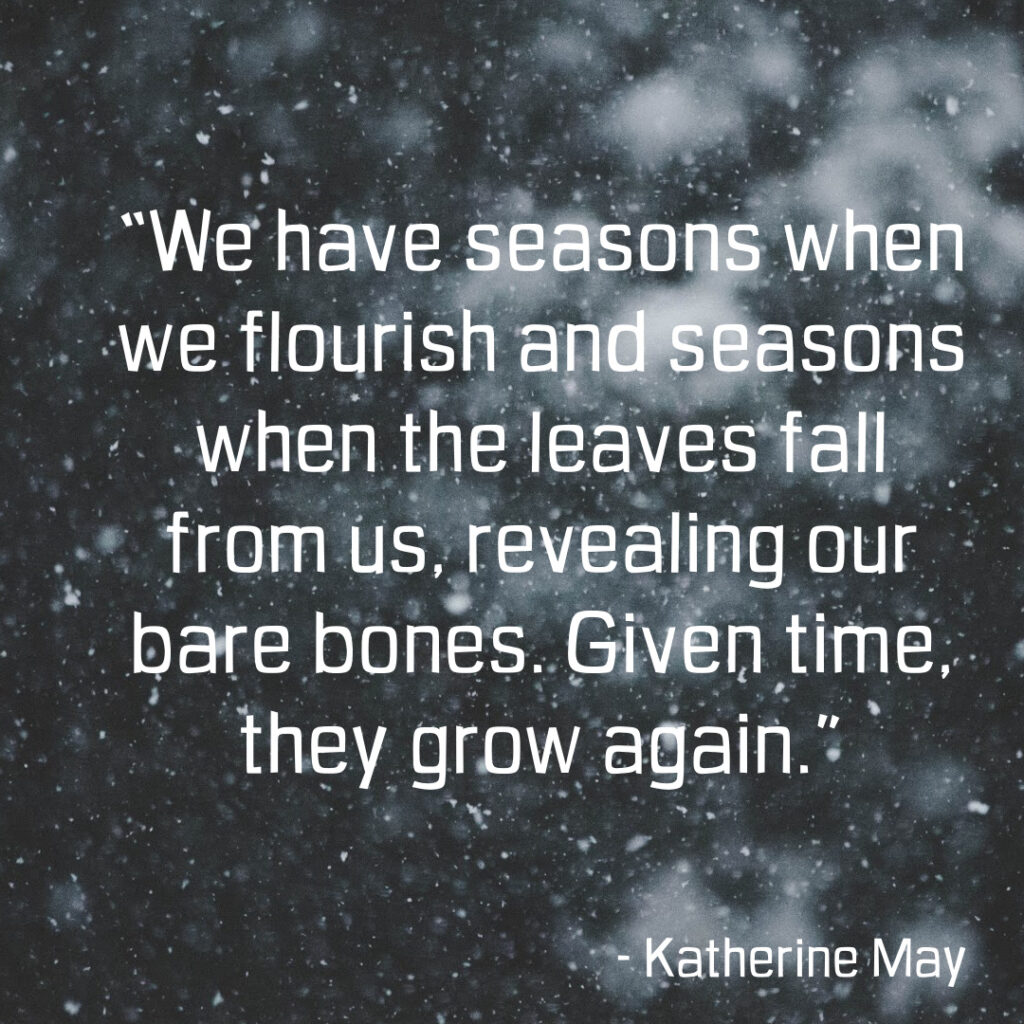
Do you enjoy reading memoirs? Do you have any favorites you would add to this list?
For some reason I can’t comment as usual through the WordPress Reader…..but I’ll try this directly through your website. I love your memoirs series! For Hard But Hopeful Memoirs have you read The Choice by Dr Edith Eger or Finding Me by Viola Davis? ~Carol @ ReadingLadies
Sorry the usual commenting spot isn’t working, but thanks for finding a way. I have not read either of those but will add them to my list, thanks for the recs!